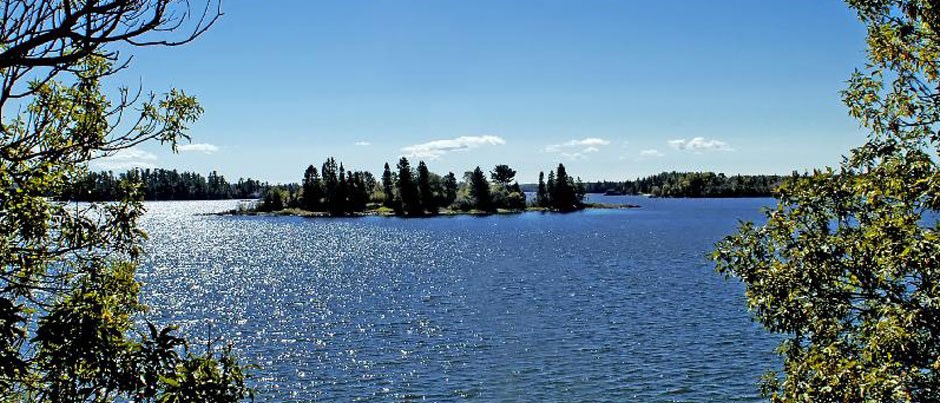FORT FRANCES — Municipal, tourism and First Nations stakeholders continue to press federal officials on what they say is a lack of enforcement on waters that straddle the Canada-U.S. border — in particular over a lack of oversight of American anglers.
A letter was sent to numerous federal and provincial ministries in July by a coalition of interests, including the municipalities of Kenora, Fort Frances, and Sioux Narrows-Nestor Falls, along with Nature and Outdoor Tourism Ontario and Destination Northern Ontario, and the Anishinaabeg of Kabapikotawangag Resource Council — a not-for-profit that provides advocacy, advisory and technical services to five First Nations in Treaty 3 territory.
Fort Frances mayor Andrew Hallikas told Newswatch in an interview there are numerous longstanding concerns from the coalition about a lack of enforcement and patrolling on Lake of the Woods and Rainy Lake by the RCMP and the Canadian Border Services Agency, or CBSA. There is also opposition to what they say is a system that allows U.S. anglers to fish on Canadian waters without having to declare themselves at a Canadian border stop if their guide has a specific Canadian work permit and the angler has an Ontario outdoors card — so long as they don’t touch land or tie up to other boats.
“They're not allowed to touch land, but they can use Canadian resources, (and) they don't contribute to the Canadian economy in any way,” Hallikas said. “They don't go through (a border crossing) coming into Canada or leaving Canada — they don't go through any port of entry.”
“There's a real concern about border security as well as loss of resources and economic resources.”
In its letter, the Northwestern Ontario coalition said there is a “steady rise” in U.S.-based guides bringing people across the border for daily fishing excursions, then returning south of the border. Hallikas said there’s “a proliferation of American resorts and camps” on the U.S. side of the lakes, “because business is booming.”
“Anyone else who enters our country legally must go through some form of declaration,” the coalition’s letter stated. “This gap in border security must be closed.”
The letter also addressed what the coalition said is “great concern” that “is building over the added pressure on our fisheries without much oversight.”
Hallikas said the current situation means too much of the enforcement piece is falling on Ontario conservation officers.
“I really have a great deal of respect for conservation officers, but they're stretched thin; there's not enough of them,” he said. “They do what they can.”
“The RCMP are absent,” Hallikas continued. “There's very, very few RCMP officers between, say, Marathon and Kenora and the Minnesota border, so they're missing in action.”
“CBSA doesn't have much of a presence on the lake as well, so it kind of all falls on the back of the conservation officers, and their job isn't border security.”
“The RCMP is continually reviewing its operational priorities to ensure areas are appropriately resourced,” Erica Prince, a spokesperson for the national police force said in an email to Newswatch. “The RCMP conducts maritime patrols in various waterways and enforces all applicable federal legislation.”
“The RCMP works in partnership with Immigration and Refugee Citizenship Canada to enforce the Immigration and Refugee Protection Act if evidence suggests an incident is related to this act.”
An RCMP update on border security from July stated that “for operational integrity reasons, the RCMP cannot provide the number of regular members deployed between the ports of entry.”
Prince said the force works with Canadian border officials and other law enforcement and the U.S. Coast Guard through binational programming “to jointly patrol shared waterways along the Canada-U.S. border under the supervision of the host country’s officers.”
The Canadian Border Services Agency told Newswatch in an email that enforcement between specific ports of entry is the responsibility of the RCMP, including on the water, and that, under current rules set out in the Customs Act, foreign nationals entering Canadian waters only have to report to the CBSA if they land on Canadian soil, or come to port, anchor, moor, make contact with another vessel, or "embark or disembark people or goods in Canada."
"Any potential changes to the act itself are addressed through the legislative process in Parliament," said Luke Reimer, a CBSA spokesperson.
Matthew Krupovich, a spokesperson with Immigration, Refugees and Citizenship Canada, said the regulations that allow American guides to operate in Canadian border waters under special work permits fall under the International Mobility Program, which requires an offer of employment to be submitted to the federal department.
“Applications require evidence that there is a significant benefit to Canadian citizens or permanent residents prior to obtaining a permit,” he said.
The Northwestern Ontario coalition’s letter to federal and provincial ministers — including Immigration, Refugees and Citizenship Minister Lena Diab — makes two primary recommendations.
One is to modify an existing permit that regulates remote area border crossings in the Northwest so that it also includes people who cross into Canada entering by water and who don’t touch land.
“This would allow the Canadian government to, at the very least, check for admissibility into Canada,” the letter said. The second is to eliminate “the issuance of work permits for U.S. angling guides on the border waters.”
Two other recommendations include mandating all non-residents entering Canada over the water to go through a physical CBSA checkpoint and an increase of RCMP and border services presence on border waters.
Hallikas said regional interests are taking the issue seriously.
“We are very, very concerned about the situation on the border waters,” he said. “It's a serious situation.”
